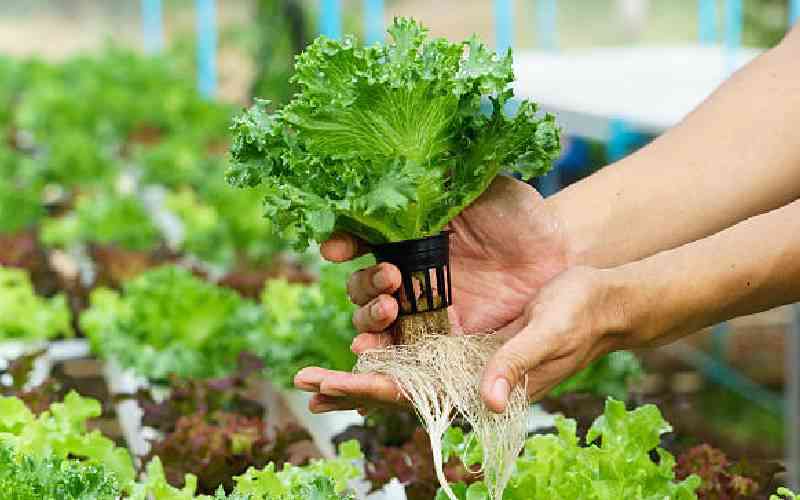×
The Standard e-Paper
Kenya’s Boldest Voice

As the world grapples with the unpredictable throes of climate change, traditional agriculture finds itself at a crossroads.
In pursuing sustainable alternatives, a beacon of hope emerges from an unexpected source - hydroponics. This revolutionary cultivation method promises to redefine our approach to food production but stands as an ally in the battle against climate change.